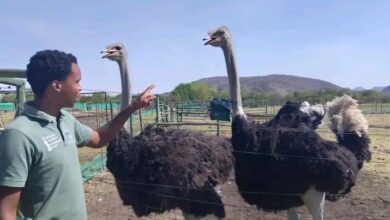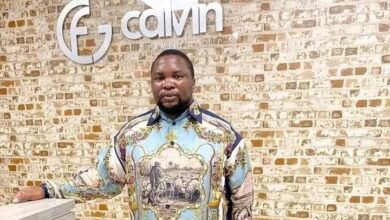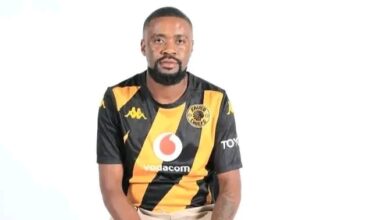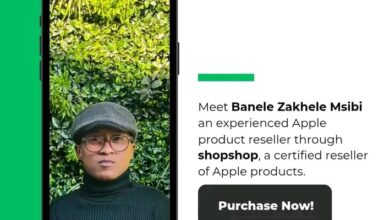Toyota, Sasol And Air Products Join Forces To Develop South Africa’s First On-Road Hydrogen Mobility Proof-Of-Concept Ecosystem
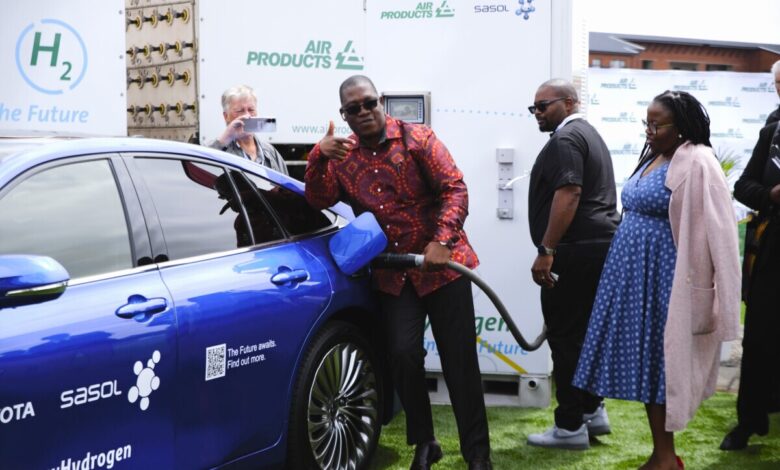
Toyota, Sasol And Air Products Join Forces To Develop South Africa’s First On-Road Hydrogen Mobility Proof-Of-Concept Ecosystem. Sasol, Toyota South Africa Motors (TSAM), and Air Products South Africa (APSA) made history at the Smart Mobility Africa Summit, at the Gallagher Convention Centre, in Johannesburg with the presentation of South Africa’s first on-road demonstration of a hydrogen mobility ecosystem.
The proof-of-concept used a second-generation Toyota Mirai fuel cell electric vehicle (FCEV) fuelled with hydrogen produced by Sasol and dispensing technology provided by Air Products, to take several VIPs as passengers around a test track. The partnership between the three technology leaders was formed in 2021 to promote the use of hydrogen as a fuel of the future. “Today is an important stepping stone towards realising the ambitious goal of developing an on-road hydrogen mobility ecosystem,” said Fleetwood Grobler, President and CEO of Sasol.“Hydrogen, the most abundant element in the universe, has the potential to be a game-changer in the quest for sustainable transportation.”
Priscillah Mabelane, Sasol’s Executive Vice-President, Energy Business: “Sasol is proud of this opportunity to showcase the potential of a hydrogen transportation system, which has been bolstered by our first green hydrogen production at our Sasolburg Operations where we have installed an initial 3 MW solar farm in Sasolburg. This will be supplemented by a supply of 69 MW of renewable energy from a wind farm in the Eastern Cape in 2024 to ramp up production to 3 500 tons a day. With both renewable resources on stream, we will have sufficient power to commercialise green hydrogen in South Africa, marking a significant step in our energy transition journey as a country and as Sasol.”
This proof-of-concept demonstration showcased a hydrogen mobility ecosystem, a sustainable alternative that can decarbonise the hard-to-abate and hard-to-electrify heavy duty transport sector such as long-haul trucks, buses and mining fleets. “Toyota has been actively involved in the research and development of vehicles using hydrogen as a source of motive power for more than 30 years, going back to 1992,” explained Andrew Kirby, President and CEO of Toyota SA Motors.
“Toyota has sold more than 25 000 fuel cell electric vehicles since then. In fact, a prototype FCEV was used in a static display at the 2002 World Summit on Sustainable Development which was held in Johannesburg. Today we are proud to have two of our second-generation Toyota Mirai sedans here for the ecosystem demonstration. They are the flagships of our hydrogen FCEV programme and were only launched last year. The first generation Mirai went on sale in 2015 and 12 000 of them were sold in seven years,” explained Kirby.
“Air Products has a long history in South Africa as a leader in the local industrial gas market and related supply chain management,” said Rob Richardson, Air Products South Africa’s Managing Director. “Globally we have been conducting safe hydrogen fuelling for more than 25 years and during that time have conducted an average of 1.5 million hydrogen fuelling operations a year. Air Products has more than 250 hydrogen fuelling sites in 20 countries and holds 50 patents for hydrogen fuelling. We are supporting clean energy, low carbon, and renewable applications globally. Air Products is involved not only in fuelling cars, trucks, and buses, but also submarines, ships, train locomotives, power generating systems, forklifts, and materials handling equipment.”
“Our FCEVs have not only undergone stringent testing by Toyota itself and its many partners working with the company on its hydrogen development projects but the first generation Mirai has also proved itself in everyday use in a hard-working taxi fleet in Munich, Germany. The 120 Mirai’s in the fleet have already transported more than 100 000 passengers and travelled over one million kilometres. The second generation Mirai is now taking over from its predecessor in this fleet and 200 have been ordered,” commented Toyota’s Kirby.

